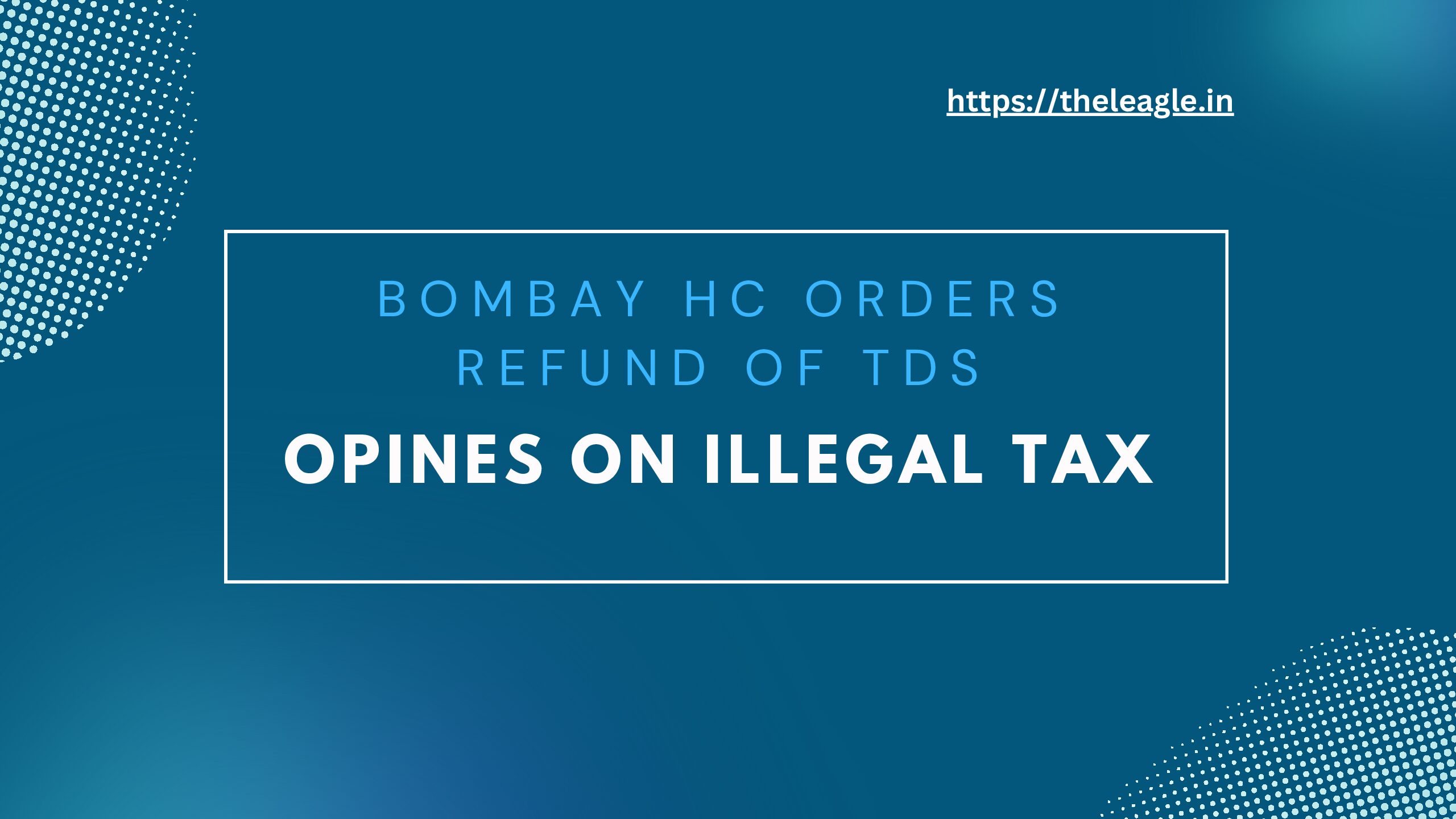In a recent judgment[1], the Bombay High Court ordered the Revenue Department to return the tax deposited by the assessee and opined that retaining tax that was not owed by the assessee in the first place would be in contravention of Article 265 of the Constitution.
Facts
The petitioner, an Indian company entered a Foreign Technical Collaboration with a US company. Petitioner agreed to pay US company US $ 16,231,000 net of any Indian income tax meaning that if any withholding tax was required to be deducted it would be paid by the petitioner while the US company would be paid the gross amount. The petitioner sought a no objection certificate from the Revenue Department without withholding any tax. The petitioner’s argument was that the services are rendered by the US company outside India, the income embedded in the amount accrues and arises to the US company outside India and is not taxable in India. However, the Revenue Department only issued a no objection certificate provided a 30% withholding tax was deducted. The petitioner paid the said witholding tax under protest and it was the refund of the withholding tax amount that was the subject of the impugned judgment. The petitioner’s case, succinctly put, was that the since the amount paid to US company was held to be non-taxable in India the Revenue Department was obliged to refund the withholding tax.
The Revenue Department rejected the petitioner’s claim for refund on the ground that the tax was paid on behalf of the US company.
Petitioner’s Argument
Petitioner’s argument was that the Revenue Department was incorrect in taking the view that the witholding tax was deposited by it on behalf of the US company. The petitioner argued that the tax was paid by it on from its own pocket over and above the consideration agreed between it and the US company. And the US company has agreed to the same and has issued a no objection certificate that the refund be issued to the petitioner.
The edifice of petitioner’s argument though was that once the Court had held that the income earned by the US company was not taxable in India, the tax deducted at source by it was not in accordance with the law and the amount so deducted must be paid back to it.
The Revenue, on the other hand, made several arguments of varying persuasion but was not able to substantiate them convincingly. The Revenue, for example, suggested that the Court’s order that the income earned by US company was not taxable in India could not be used by the petitioner and the refund could be claimed only by the US company. The Revenue also suggested that the US company had claimed credit of witholding tax against tax liabilities. However, the Bombay High Court did not agree to any of the Revenue’s arguments.
Bombay High Court Decides
The Bombay High Court cited the order wherein it was held that the US company did not owe any tax in India on the income and concluded that:
Technically, even though the amount deposited by Petitioner would be called as ‘tax deductible at source’, what Petitioner paid was ‘an ad hoc amount not technically a TDS amount’. Moreover, since it is also confirmed by this Court that the amount paid to DAVY was not chargeable to tax in India, Respondents’ insistence on Petitioner paying that amount was not in accordance with law and the amount so paid over must be refunded to Petitioner. (para 17)
The Bombay High Court relied on a few additional aspects: CBDT Circular No. 7 0f 2007 dated 23.10.2007 which stated that where no income has accrued to the non-resident or where income has accrued but no tax is due, then in such cases the amount deposited with the government cannot be said to be ‘tax’. The High Court also cited a line of relevant precedents which have established that the Revenue authorities can only collect tax per law and any tax collected illegally or not due from the taxpayer needs to be refunded else would in contravention of Article 265 of the Constitution.
Conclusion
The refund of tax paid out of caution and which is held to be not due from the assessee should not, ideally speaking, be a painful and long drawn process. In the impugned case, the petitioner as part of business transaction paid the tax on behalf of the US company but had to engage a lengthy process to claim refund of a tax which should have been paid much earlier. Single judgment such as in the impugned case lacks the ability to ensure course correction by the Revenue Department, but we live in hope.
[1] Grasim Industries Ltd., v Assistant Commissioner of Income Tax, Mumbai 2023: BHC-OS:9537-DB.
